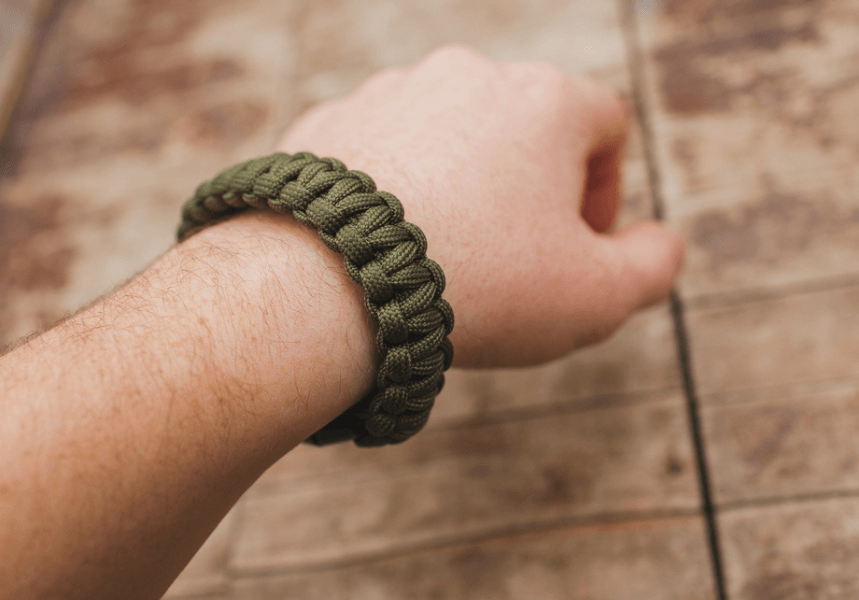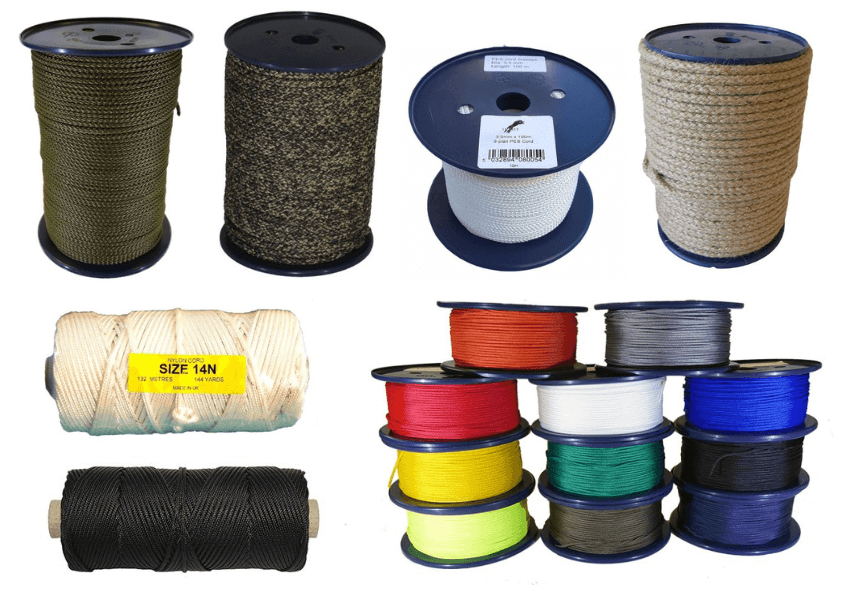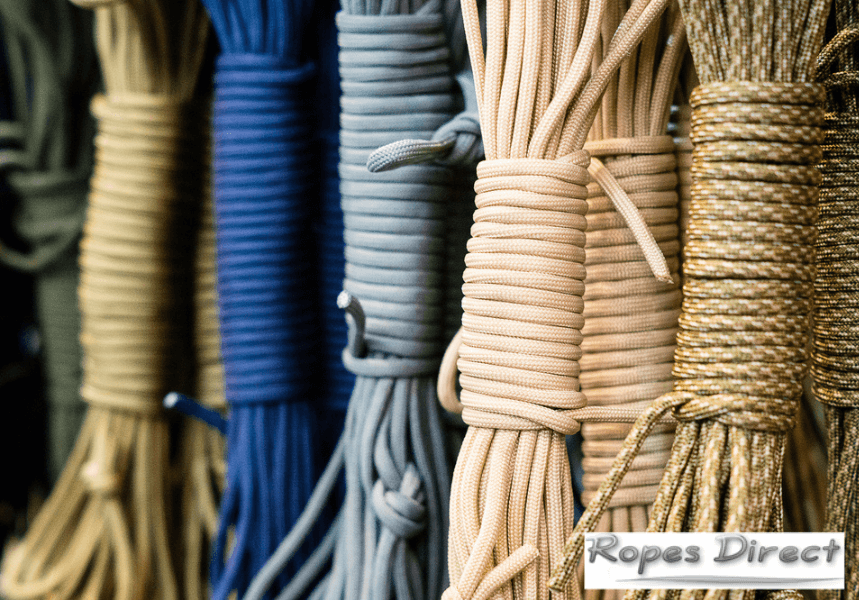Want the lowdown on paracord?
You couldn’t have landed on a better blog.
RopesDirect is a leading online supplier for braids, cords and paracords in the UK – and our knowledge in this area is pretty excellent (even if we do say so ourselves).
To get to grips with this popular type of rope – and, crucially, help you decide if it’s the right product for you – here our experts round up all the important information that you need to know.
Do your research, then browse our full range of cords and braids.
What is paracord?
Strictly speaking, the word ‘paracord’ refers to one very specific type of cord: the braided nylon variety, that was commissioned by the military in 1944.
Used by paratroopers during WW2, this came in a variety of thicknesses and strengths. But the most widely-used and well-known type is Paracord 550; a ‘kernmantle rope’, with 7 inner nylon strands (enclosed in a sheath of braided nylon) and a breaking strength of 550 pounds.
Fast forward a few years to the present day.
Now, ‘paracord’ is a term used commercially to describe a wide range of braided cords and ropes. These either have the original kernmantle construction (i.e. with a core) or they can be double or single braided without a core. And they can be made from a wide range of materials, including nylon, polypropylene, polyester, polyethylene, HMPE, cotton, jute and more.

What are the key properties of paracord?
This ultimately depends on the material from which the cord is made, its structure (e.g. is it single or double braided or does it have a kernmantle construction?) and thickness. To get a better idea, detailed information on the properties of each rope material can be found in our previous blog.
But generally speaking, most paracords share three main qualities:
1. Exceptional strength
Due to how they’re made, paracords are inherently very strong.
The individual strands are woven into a tight lock-stitch braid. And if those strands are made from nylon, polyester or HMPE– some of the toughest rope fibres currently available – this construction creates a level of strength and sturdiness that’s difficult to match.
2. Excellent durability
Paracords are designed for prolonged outdoor use in the harshest of conditions.
For a start, they demonstrate effective resistance to UV rays, chemicals and abrasion. They aren’t affected by liquids and what’s more, even when exposed to severe weather elements, they will maintain both their exceptional strength and elasticity.
3. Easy to handle
Despite their strength and resilience, paracords are still very lightweight. They’re also soft-to-touch and flexible – particularly those without a core. Making them incredibly easy to use.

What can paracords be used for?
Parachutes! Or at least, they used to be. This was the first way in which braided nylon cords were ever used – hence why they were given the name ‘Para’ cords.
Originally, they were employed as suspension lines for US military parachutes. In fact, nylon cords allowed American airborne units to drop in behind enemy lines on D-Day, turning the tide of the world war. And whilst on the ground, troops soon realised their versatile nature – subsequently using them as a light-duty utility rope and survival tool.
Since then, paracords have been adopted for many purposes. Interestingly, in 1997, they were even employed by NASA, to repair the protective covering of the Hubble Space Telescope!
On a practical day-to-day level though, they can also be used for a range of commercial and domestic applications, including (but not limited to):
- camping
- adventure activities
- hiking
- fishing
- exercise
- crafts
- decoration
- jewellery making
Where can I buy paracords?
RopesDirect is a one-stop shop for all your paracord supplies.
Within our cords and braids collection, we have a diverse range of ‘paracord’ products for you to choose from – with something to suit all needs and preferences.
This includes classic Braided Nylon Cord. Manufactured from polyamide (the technical name for nylon), this is a multi-purpose option – with a 16-plait construction and a maximum breaking strength of 45-450kg (depending on the thickness chosen). It’s available in diameters of 1.5 – 5mm, in both black and white, and starts from £6.72 for a 132m reel.
In addition, we also stock:
- Khaki Green Polypropylene Multicord
- Braided Nylon Starter Cord
- Jute Cord
- Polyester Cord in Black and White
- Multicoloured Polypropylene Cord
- Pink Multifilament Polypropylene Cord
- Camouflage Cord
- Reflective Polypropylene Cord
- Dyneema Braid
- Magician’s Cord
All of which are priced affordably and in stock, ready to be dispatched from our warehouse.

Think paracord could be the right option for you?
Browse our full online collection of cords and braids today.
Or, for anyone who still isn’t 100% sure, additional information on paracord – and the different rope materials from which it’s made – can be found in our ‘Help Choosing Rope’ section. Before placing an order, it’s definitely worth taking a look. Think about how you intend to use the cord or braid and always read the product specification carefully.
Our RopeFinder tool can also be very helpful in selecting the ideal product.
But if you’re still struggling to make a decision, or have a particular question that we haven’t answered here, please don’t hesitate to get in touch. We’re always happy to be of assistance.

